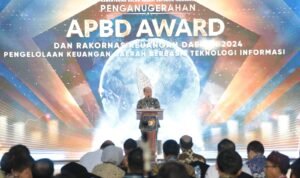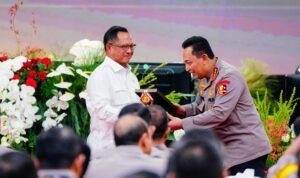Jakarta–Detakpos.com-In 2045 or a century of Indonesian independence, we imagine Indonesia to be a Sovereign, Advanced, Just, and Prosperous country. To be a high-income and competitive country.
To be one of the largest countries in the world. Not only because the population estimated increase to 318 million people, but because the people have received a good education-quality, physically and mentally health, able to manage socio-cultural diversity. This is where national resilience is very important as a prerequisite, conditio sine quanon to be able to achieve the 2045 Indonesian Vision.
National resilience is an important aspect in development. National resilience is defined as the dynamic condition of the Indonesian nation which contains resilience in facing and overcoming all threats, challenges, obstacles and disturbances (ATHG), both coming from outside and from within the country, direct or indirect, which can endanger integrity, identity. as well as the survival of the nation and state.
National resilience is a condition and conception to achieve national development goals and goals of the state. National resilience will facilitate efforts to achieve national development targets. The success of national development will strengthen national resilience.
There are three modalities of national resilience in Indonesia, they are stable economic growth – although slowed slightly due to the Covid-19 pandemic, the 3rd largest democracy in the world, and the country with the 2nd largest terrestrial biodiversity in the world.
When combined with biodiversity in the sea, Indonesia will be the first. Biodiversity plays an important role in providing food, water, shelter, clean air and medicine for the Indonesian people.
Indonesia is a pluralistic country. With an archipelago constellation of 17,504 islands, in our country there are 6 religions and various faiths, 1,340 ethnic groups, and 742 regional languages.
This diversity is a potential, but it can also be a challenge. Some of the challenges in managing Indonesia’s pluralism include: differences in political views, religious differences, as well as multi-ethnicity and income inequality that can trigger horizontal conflicts in society.
Hopefully we can maximize all the potential that exists in Indonesia for the prosperity, as well as able to anticipate challenges that exist inside and outside Indonesia.(HMS)







